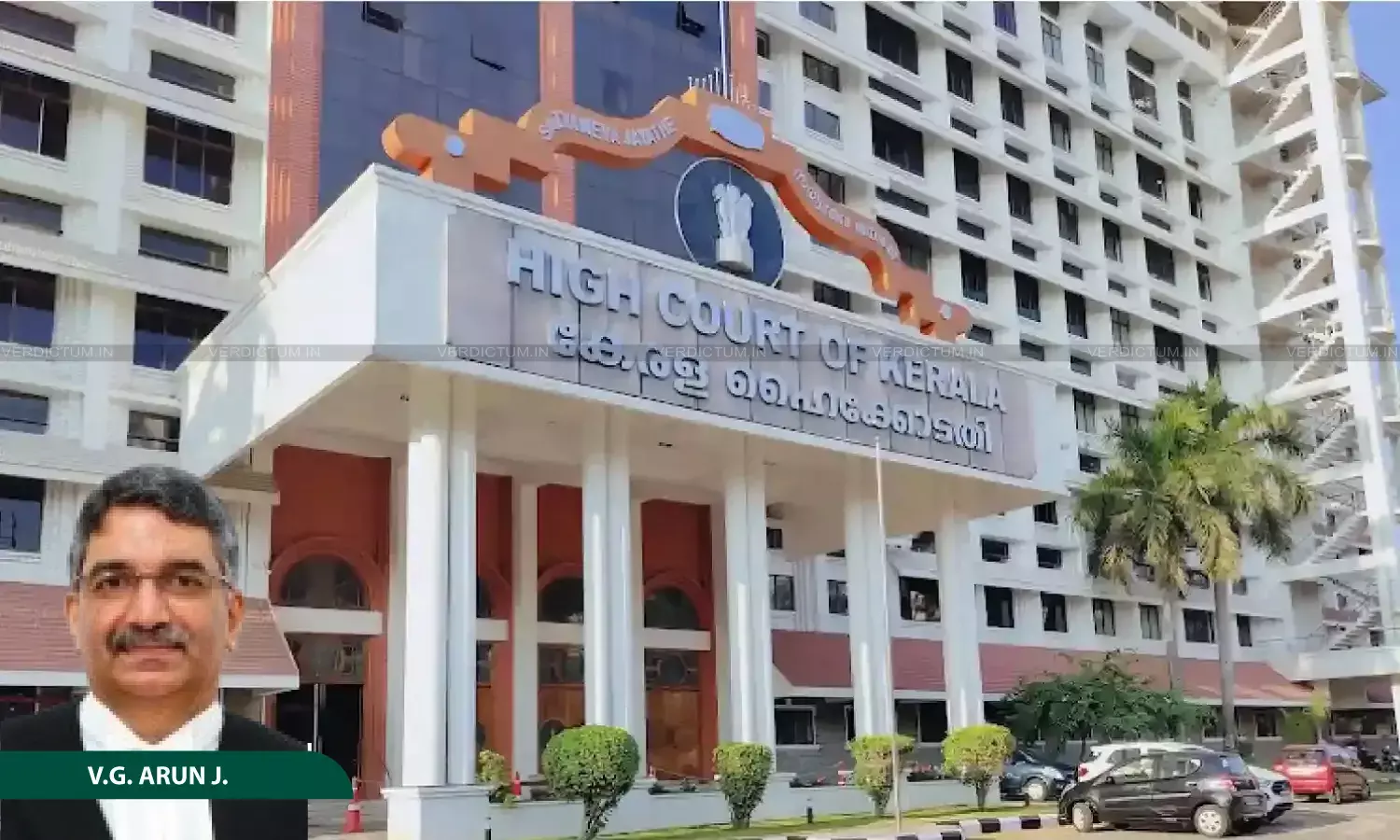Revenue Recovery Act| Authorized Officer Has No Power To Demand Transfer Of Amount From Borrower’s Account To His Account: Kerala High Court
The challenge in the writ petition was made against the order of the Special Deputy Tahsildar (Revenue Recovery), restraining the petitioners from operating their bank account.

Justice V.G. Arun, Kerala High Court
While staying the operation of the impugned order to the extent it directed the Bank Manager to transfer the amount in the borrowers' account to the account of the authorised officer, the Kerala High Court has observed there is no provision in the Revenue Recovery Act empowering the authorized officer to demand transfer of the amount in the borrower’s account to the account of the officer.
The challenge in the writ petition was made against the order of the Special Deputy Tahsildar (Revenue Recovery), restraining the petitioners from operating their bank account.
The Single Bench of Justice V.G.Arun held, “Here I find merit in the contention of the counsel for the petitioners that no provision in the Revenue Recovery Act empowers the authorized officer to demand transfer of the amount in the borrower’s account to the account of the authorized officer. In the absence of such power, the direction militates against Article 300A of the Constitution of India which protects a person from being deprived of his property except by authority of law.”
Factual Background
By the impugned order issued under Sections 19 and 80 of the Kerala Revenue Recovery Act, 1968 (Act), the Manager of the Bank in which the petitioners were maintaining their account was directed to recover the amount mentioned in the order from the petitioners' account and credit that amount to the account of the Special Deputy Tahsildar (RR). The order was issued at the instance of the Kerala State Financial Enterprises Limited (KSFE) from which the petitioners had availed a loan and defaulted on repayment.
Arguments
It was the petitioner’s case that the loan was fully secured by mortgaging landed property as security, and hence, the remedy of the KSFE was to proceed against that property. It was also contended that the provisions of the Revenue Recovery Act do not empower the Tahsildar to freeze the borrower’s account.
The Standing Counsel for the KSFE submitted that the extreme measure of freezing petitioners' bank accounts was taken since they had deliberately defaulted on repayments and refused to respond to the revenue recovery notices. It was also contended that money in a bank account is not excluded from attachment under Section 9 of the Act.
Reasoning
Referring to the provisions of the Kerala Revenue Recovery Act, the Bench explained that as per Section 8, movable properties mentioned therein are tangibles. Noting that Section 19 provides for attachment of intangibles like debts, shares and other movable property, the Bench stated that the 'other movable properties' mentioned in Section 19(1)(c)(iii) will also include bank accounts. By exercising the power under Section 19(1)(c)(iii), the person in possession of movable property other than debt and share can be prohibited from giving it over to the defaulter.
The Bench also stated that the Bank could be prohibited from releasing the amount from the account of the petitioners. Reference was also made to the judgment of the Apex Court in State of Maharashtra v. Tapas D Neogy (1999), wherein after referring to Section 102 of the Code of Criminal Procedure, it was held that the bank account of the accused can be treated as “property”.
Stating that Section 5 gives the option of initiating any of the measures mentioned therein for recovering the arrears of public revenue due on land, the Bench refused to accept the contention that the loan was fully secured by a mortgage of immovable property and proceedings coulnot be initiated against the movable property. The Bench thus stayed the operation of the impugned order to the extent it directed the Bank Manager to transfer the amount in the petitioners' account to the account of the authorized officer.
Cause Title: Sameer Khan v. Special Deputy Tahasildar(RR) ( Case No.: WP(C) 39775/2025)

